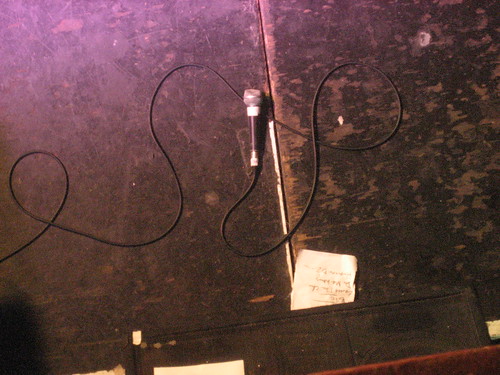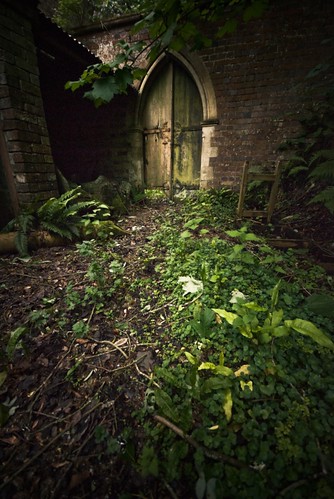
I’ve been to a whole load of readings and other author events this Festival – avoiding as I am every aspect of the white, male, thirty-something, rape-joke-cracking comedy side of things. And although I’ve had a creeping sense of this for a while, this Festival season it has really struck me just how badly people behave in post-reading Q&A sessions.
It’s got to the point where, on the rare occasions that the event’s chair announces that there will not be a Q&A session afterwards, I feel a palpable surge of relief. You’d think that good behaviour – particularly at a set-up as supposedly erudite as the Edinburgh International Book Festival – would be a no-brainer. But apparently not – it’s more likely to be a free-for-all of terribleness. Therefore, let me share with you my no-shit-Sherlock rules for good Q&A behaviour, wherein I will also share some of the horrors I have been [un]fortunate enough to witness.
1. It’s a Q&A… so ask a damn question
The clue to this one’s in the name, folks – question and answer. Seems straightforward, right? And yet, the most commonplace Q&A sin is most definitely Question Fail. The non-question usually comes from someone whose hand shoots up in a Donkey-from-Shrek gesture. And you can tell as soon as they start that there is no question at the end of their faltering verbal rainbow. They start with “I’d just like to say…”, or “Isn’t it interesting how…”, or sometimes “You’ve just got me thinking about…” And after a while it becomes apparent that they don’t actually want to ask anything. The speaker nods politely along, perhaps trying to engineer a possible response in spite of the fact that the non-questioner doesn’t really want one. The non-questioner just wants the microphone. And yaknow, we’ve all paid ten quid for the privilege of hearing from the speaker. Please ask them something so they can say interesting things to us!
2. It’s not all about you.
A greater awareness that there are other people in the audience would serve a lot of questioners well in general. I’m speaking now of those people – some of whom have real questions and some of whom don’t – who see the Q&A session as an opportunity for them to have a private one-to-one conversation with the speaker. They ask a (non-)question, the speaker responds, and then instead of surrendering the slippery, sweaty roving mic to the next eager hand-waver, they respond back – sometimes numerous times and often at length. Admittedly, there are some event chairs who won’t allow this sort of behaviour and who will attempt to head these me-me-me types off at the pass. But this is Blighty after all, and many chairs and speakers will simply nod politely as the precious seconds of the often-too-brief Q&A tick by. Again: dude, I have spent a whole piece of paper money to come to this event. I did not spend that money so I could hear you chat about how much you liked the voice-acting in Brave (this really happened) with a speaker whose topic had absolutely nothing whatsoever to do with Pixar’s totally-not-a-princess-movie. Please be quiet now. (Although yes, Brave is great. Just not now.)
3. ’splaining is never acceptable…
…especially when you are talking to someone who is an expert in their field. Seriously: I can never understand folks who’ll wait until the speaker has finished unpacking years of research on a subject obviously close to their hearts before reaching for the mic and saying “actually, x is totally untrue! I read an article about it in the Telegraph!” Some cases in point: Marina Warner is one of the world’s greatest and most knowledgeable scholars of myth and folklore. She’s been publishing on the subject since the mid seventies. What this woman doesn’t know about folklore doesn’t exist. And yet, at the end of Warner’s brilliant lecture at the Book Festival, a woman raised her hand to say, “I don’t know if you realise this, Marina, but Scotland has a very vibrant culture of folklore and storytelling!” Dude. It’s Marina freaking Warner. I guarantee you she knows.
I witnessed another example of ’splaining at Alice Oswald’s truly incredible Book Festival reading. There was no Q&A session, but punters were encouraged to bring questions to Oswald during the signing. The signing queue was huge, it was 10pm and poor old Alice had just read non-stop from memory for an hour and twenty minutes. Needless to say, she was obviously exhausted. And yet, a bloke in the signing queue in front of me had no qualms about stepping up to the table to tell her all about the good old days of his own Homeric studies as an undergrad at Oxford, and by the way, did she know x and y about Homer? The woman is an expert, man! She knows.
Finally – and I really thought that in terms of ’splaining, by now I’d seen it all – at Andrew Keen’s Book Festival event, a truly ’splain-tastic gentleman spoke up at the back. Keen had just finished discussing the possible dangers of social networking for young people, a subject that his two nonfiction works have examined at length. After slagging both books horribly (and I’ll return to this in a moment), the gentleman pointed out that, “according to studies” (BECAUSE OF REASONS!), young people are highly responsible users of social media and only ever ‘friend’ people they definitely know IRL. He actually said, his white beard shuddering with indignation, “I know how young people behave, and you’ve got them completely wrong.” As a young person myself (who has nearly 2,000 Twitter followers and not a clue who most of them are), and a FE lecturer who teaches over 150 young ’uns a year (all of whom talk about “some random on my Facebook,” etc), I must say to you, sir: you are embarrassing yourself.
Everyone else: please do not be this person.
4. Do not slag the book.
I’ve witnessed this more times than I care to mention, yet I still do not understand the logic. Before the white-bearded ’splainer above began telling everyone in Edinburgh all about How Young People Behave, he first launched a massive tirade against the speaker, his books, and everything he stood for. He began with, and I quote, “I read your first book and frankly I thought it was a shoddy piece of work” (cue a lot of booing and hissing-through-teeth from the audience), before adding, “and I totally disagree with everything you say in this new book!” Happily, Andrew Keen is a long-time Silicone Valley insider, and about as hard-boiled a speaker as you get at the Book Fest, so without batting an eyelid he responded, “so you’ve read the new book, then?” When Beardy McSplain had to admit that he had not, Keen continued, “well, you’re not putting yourself in a desperately credible position, then, are you?”
However, I have seen authors panic in the face of their book being wantonly slagged in the Q&A. In an event at the Book Fest last year, the author – who I won’t name – faced a screeching elderly woman in the front row telling her that In My Day Women Like You Would Have Been Called Lazy Sluts, or words to that effect. The poor woman was just open-mouthed with shock, as were the audience.
The reason I don’t understand people who publicly attack the book (or the author) is not because I think the authors shouldn’t have to deal with it. Personally, I see hecklers as part of the public reading territory and almost relish the challenge they provide (I’ve never been called a lazy slut, though, I suppose). No, the reason I don’t understand it is this: if you hate this person and all that they write about/stand for so much, why the everloving hell have you spent ten whole pounds to come to their event? That’s two and a half pints, or a good novel, or four copies of the Big Issue! Folks – do everyone in the world a favour, stay home and give that money to a deserving charity.
5. Wait to be asked.
Just a piece of common courtesy, this. I was at an International Festival event the other day – a panel discussion featuring three academics and the chair. It became clear towards the end that the chair was trying to wrap things up for questions, but before she had even finished speaking, an extremely rude man in the front row threw out his arms towards the panel and boomed, “SO LET ME ASK YOU THIS, THEN…” Happily, the chair cut in and demanded that a) be quiet until she was done and b) he wait for the roving mic (although he really didn’t need it) – but even so, I was gobsmacked. I mean, I’ve asked questions in Q&As before – I do so quite regularly – but there is no way in hell I would ever take it upon myself to decide that I was sick of listening now and HEY LISTEN TO ME INSTEAD! Ladies and gents – be nice. Wait til you’re asked. This is the literary world, we’re civilised here! Aren’t we…?
Right – now I want to hear your horror stories. I know you’ve got them! Have you come across someone even worse than Beardy McSplain? Tell me in the comments box!
*
You can also visit Read This Press for more poetry (and typewriter paraphernalia!). Alternatively, check out Edinburgh Vintage, our sister site. If you want to get in touch you can follow OneNightStanzas on Twitter, or email claire[at]onenightstanzas.com. I reply as swiftly as I can!
(Photo credit)



